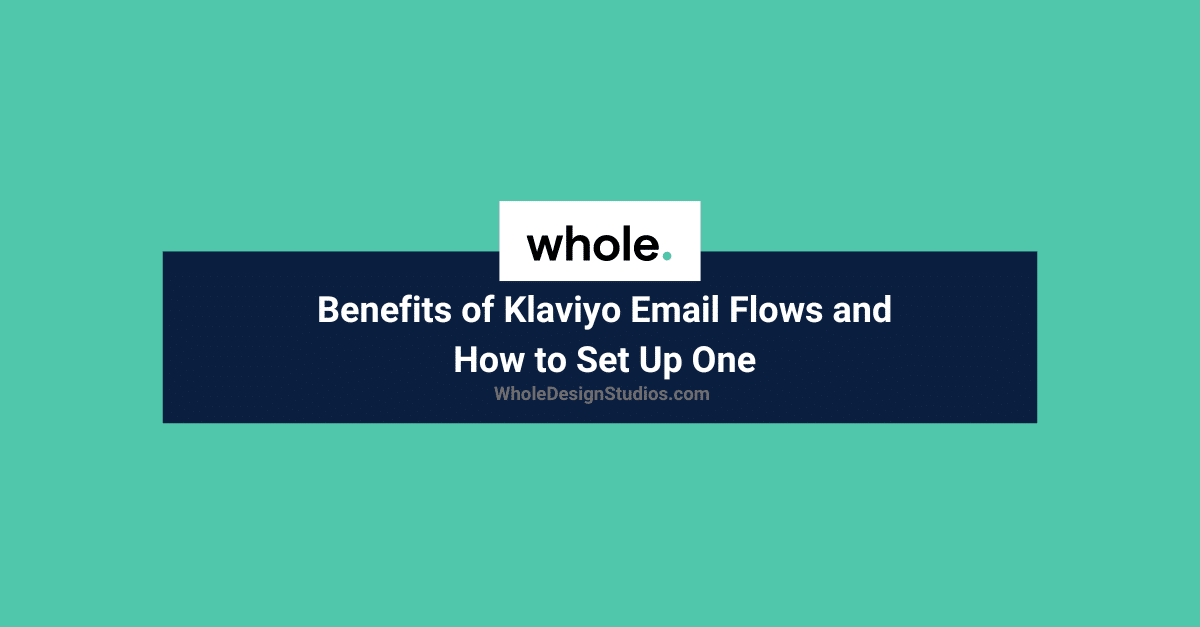
To create an effective strategy for converting more leads into customers, setting up email workflows is essential, and Klaviyo email flows are one of the best tools for this purpose.
These workflows involve a series of automated emails sent based on a subscriber’s contact details, actions, or preferences, guiding them through tasks like signing up for a service or making a purchase.
Klaviyo email flows allow you to guide customers through a personalized journey by targeting the right audience with triggered, relevant messages. By automating your emails, you can ensure that only relevant and targeted messages are sent, and Klaviyo makes this process simple and efficient.
Each workflow consists of multiple prompt emails designed to bring the subscriber closer to conversion.
If you’re ready to start using automated email workflows, here are some situations where you can apply them:
Klaviyo email flows set themselves apart from other email service providers by offering built-in best-practice routines that can be easily activated right from the “Getting Started” page.
Here are some of the great benefits of using Klaviyo email flows:
When a customer signs up for your newsletter, makes a purchase, or joins your contact list, Klaviyo makes it easy to send them a welcome sequence. These welcome emails can highlight trending or best-selling products, as well as any other information you believe your customers will find valuable.
With Klaviyo, you can send all your welcome emails in one go, no matter how many there are.
A successful abandoned cart strategy usually involves sending about three emails. The first email should go out within a few hours after a customer abandons their cart. Follow up with a second email a day later, and then send a third email two days after that. Including a promo code or a final reminder in the last email can help create a sense of urgency and encourage customers to complete their purchase.
After a customer makes a purchase, you can send them an email with links to related products. With Klaviyo’s product feeds, it’s easy to include personalized product recommendations in every email. You can also use these emails to cross-sell by featuring items that complement what the customer has already bought. Additionally, you can send new emails based on past purchases or promote similar and new products.
Win-back flows are designed to re-engage customers who haven’t made a purchase or visited your site in a while. After setting up the flow, you can send a series of emails to re-engage these customers, providing updates on what’s new since their last purchase.
Klaviyo allows for A/B testing of various email elements like subject lines and content to help you determine which emails are most effective. Unlike campaign tests, which run for a few hours, Klaviyo email flows are ongoing. Therefore, you’ll need to manually select the winning version after allowing the test to run for an appropriate amount of time. Once you’ve chosen the winner, you can set up a control email to continue optimizing your flows.
Here’s a step-by-step guide to get you started.
Start by navigating to your account’s main sidebar and selecting “Create Flow.” You’ll be prompted to enter a name for your new flow. If you’re unsure where to begin, explore the Flow Library for automation ideas throughout the customer lifecycle. You can find the Flow option in the left-hand column of your account’s home page.
Click “Create Flow” and name it.
Klaviyo recently introduced a new visual Flow Builder, making the process easier than ever.
Next, choose a trigger for your new flow. You can select from a list, segment, metric, price decrease, or date attribute. When someone qualifies for a flow based on the trigger, Klaviyo will check all trigger and flow filters first.
Trigger Setup includes five types of actions:
There are three main actions in Trigger Setup:
From the list, select the action you want. If you’re using Shopify, WooCommerce, or a custom integration, the steps might vary. Add Trigger Filters to your action, such as the action’s name, price, or other relevant details. Use Flow Filters to narrow the flow to a specific group of users. Once everything is set, press the Done button.
Now, you can add actions and logic to your flow. Simply choose an action and drag it into the path.
To assess the performance of your entire series, review the message metrics to understand how your flow is performing overall. The Visual Flow Builder allows you to display metrics directly on the canvas. Click “Show Analytics” in the top header menu when inside the flow builder. All message cards will expand to display key performance statistics with a customizable timeline. You will see:
Email workflows are among the best ways to communicate with customers. However, it’s crucial that your emails contain relevant information. Consider hiring professionals to help you craft the best emails for your business.
Start with a welcome email flow. It’s an excellent way to thank your subscribers for their interest in your brand and introduce your company further. You can also offer a discount on their first purchase and recommend items based on their search history.
Klaviyo’s product feeds make it easy to add product suggestions to your automated email flows. These recommendations are based on your customer’s previous purchases, browsing history, and other factors like gender, size, and season.
Triggers are set up to determine when a user qualifies to enter an email flow. For example, if someone abandons their cart without completing the purchase, they’ll trigger the “abandoned cart flow,” and the cart abandonment email sequence will be sent to them.